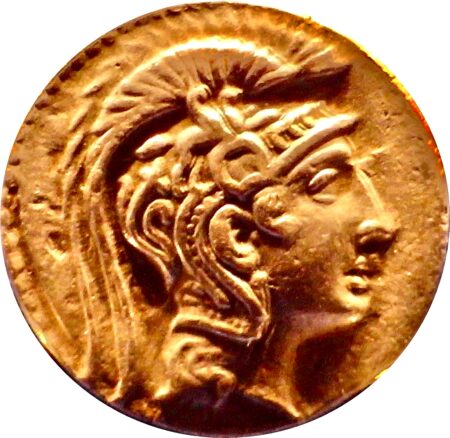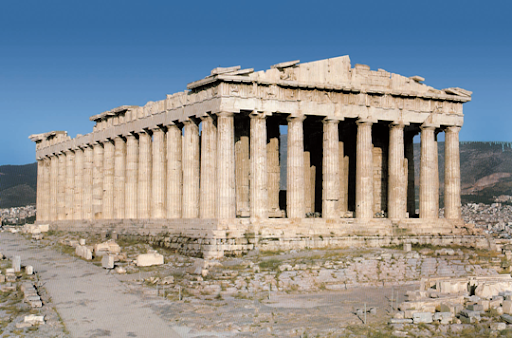By Dr. Evaggelos Vallianatos
In early December 2020, the Greek parliament approved a law allowing the export of antiquities, including entire museum collections, to foreign museums, institutions and probably individuals.
Export-Sell the treasures of Greek civilization
Thanks for reading Hellenic News of America
The law would allow these precious Greek treasures to be kept away from Greece for a long period: the first proposal from the Greek Ministry of Culture was for a century, but the reaction occurred and changed the export for twenty-five years with the possibility of another twenty-five years, in all half a century.
I don’t know the reasons for this insane decision. The Greek Ministry of Culture says the export of Greek treasures “promotes Greek cultural heritage throughout the world.”
But no self-respecting government would do such a thing: export the material evidence of the great achievements of Greek history and export these treasures for half a century, which means practically forever.
Thieves and looters of antiquities, including the British Museum which claims to “own” the Parthenon frieze looted by Lord Elgin in the early 1800s, would be vindicated for their criminal acts. They would cite this irresponsible and immoral law, claiming that Greeks themselves are sending their wealth for safekeeping abroad.

The external debt behind the sacrilege
There is also constant foreign pressure to repay the debt. This could explain the inexplicable, that the current Greek government must find perpetual money for its ruthless European and American colonial masters, demanding a pound of flesh every day. In the past, without a pandemic, Greek museums were cash cows filled with euros, which ended up in the debt machine of the European Union and the International Monetary Fund (EU-IMF).
It is therefore entirely possible that the EU and IMF debt collectors concocted this insulting law and the submissive Greek government carried out their orders.
However, no matter what motivated the drafters of this bad law and the politicians who approved it, they had better come to their senses and repeal their heinous legislation, otherwise the country of Greece will cease to be associated with ancient Greece. In fact, patriotic politicians should tell EU and IMF tax collectors to get lost. Like national defense, antiquities should be safe from outside interference.
My first visit to the Acropolis
Here’s why. I was born on the Greek island of Kefalonia, in the Ionian Sea, in western Greece. The first time I visited the Parthenon was on the eve of my departure for America in 1961.
I was then graduating from high school. My knowledge of ancient Greece was limited but enough to make my first contact with the Parthenon memorable. I continued to look at the destroyed temple and tried in vain to determine who could have damaged such a magnificent monument.
I knew nothing then of the repeated vandalism of the sacred temple of the goddess Athena by Christians, Muslims and moderns like the Turks, the Venetians, Lord Elgin and the Nazi Germans.
The marble columns appeared gigantic and powerful but expressed reason, harmony and sophisticated architecture. Looking at them and their support of the roof and the entire building, they create beauty in reality and in theory, a virtue that the Greeks called beautiful and good. Kalon K’Agathon.
I reconstructed in my mind the chryselephantine (gold and ivory) statue of Athena Parthenos (Virgin) by Phidias in the fifth century BCE. I even imagined the magnificent Panathenaic festival and sports games honoring the divine protector of Athens, daughter of Zeus, Athena.

The Parthenon
Ploutarchos has something to say about the Parthenon. He lived from approximately 46 to 120 CE. He was a Greek mathematician, philosopher, prolific writer and priest of Apollo. He wrote almost six centuries after the construction of the Parthenon by the Athenians. He left some clues as to what and who made the Parthenon possible.
He reported that the materials used for the construction of the Parthenon included marble, bronze, ivory, gold, ebony and cypress wood. The technicians who fashioned these materials to form the Parthenon included carpenters, molders, bronzers, stonemasons, dyers, gold and ivory experts, painters, embroiderers, and embossers. Add to this the rope makers, weavers, leather workers, road builders and miners. Then there were sailors and pilots who transported the marble over land and sea, and trainers and harnessed animal drivers who carried out other necessary work. In total, some 200 craftsmen and 50 sculptors carried out most of the work building the Parthenon.
Ploutarchos says that the builders of the Parthenon tried to surpass each other in the beauty of their work, inimitable in its perfection and grandeur.
In his Life of Pericles, Ploutarchos congratulated the Athenian ruler for the construction of the Parthenon. The works of Pericles, he said, were completed in a short time and forever. Each of these works was so fresh, so vigorous and so beautiful that it was at once ancient; in fact, each work like the Parthenon seemed untouched by time.
The French philosopher Ernest Renan visited the Acropolis in 1865 and, like Ploutarchos, fell in love with the beauty and sacredness of the Parthenon. He saw the ideal crystallized in Pentelic marble. He praised Greece for its philosophy, science, art and civilization. But when he saw the Acropolis, he admitted, he had a revelation of the divine.
Renan equated the beauty of the Parthenon with the absolute honesty, reason and respect that the Greeks had for their gods. He said that the hours he spent on the Acropolis were hours of prayer to Pallas Athena (Prayer on the Acropolis).
I don’t know if, like Renan, I prayed to Athena, my favorable goddess. But my thoughts were almost a prayer. My first visit to the Acropolis and the Parthenon is still with me. I never stop learning from these Greeks who created so much science and civilization so quickly, not only for themselves but for all humans.
Do not export the treasures of Greek civilization
The Greek government is wrong to start dispersing (no different than selling) ancient Greek treasures for fifty years. He has no right to destroy what has survived dark ages and endless wars.
The Greeks of Greece and the rest of humanity have the right to demand that ancient treasures remain where they are: attracting millions of tourists to Greece year after year to come into contact with the beginnings of Western civilization and perhaps offer their prayers to Pallas Athena. I do this every time I visit the Acropolis.


